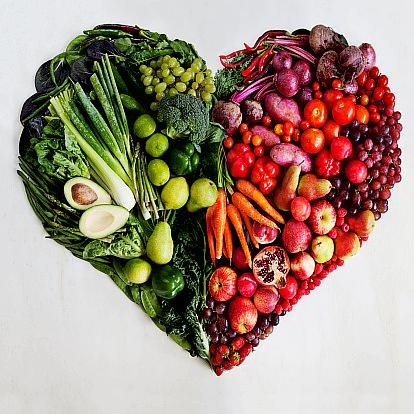Monday, October 26, 2015
Anti-inflammatory guidelines
By Paz Etcheverry, Ph.D.
In my previous blog, I promised that I was going to share with you some simple guidelines for following an anti-inflammatory diet and lifestyle. Here it is.
To an inflammation-free life, my dear blog readers!
1) Consume adequate omega-3 fatty acids.
- Eat two servings (4 ounces or 113 g each) of fatty fish per week OR supplement with 1–4 g of combined EPA+DHA daily. These will be listed on the supplement facts label.
- Reduce intake of omega-6 fatty acids to keep ratio of omega-6 to omega-3 in the range of 2:1 to 4:1.
2) Choose healthy fats.
- Replace vegetable oils, trans-fats, or butter with extra-virgin olive oil.
3) Increase vegetable and fruit intake (especially vegetables).
- Consume 5–9 servings of vegetables and fruits per day, with more than half as vegetables.
- Color your diet! Deeply colored fruits and vegetables contain higher amounts of protective phytochemicals.
- Use the plate method: the biggest portion (half the plate) is where the vegetables go (excluding potatoes)
4) Choose whole grain carbohydrates and limit the portion sizes.
- Choose carbohydrates that are whole grain and aim for a total of 25 g of fiber per day.
- Rx: Double your vegetable intake, and half your intake of refined carbohydrates (anything with flour and/or sugar)!
5) Get your protein from plant sources such as legumes, nuts, and seeds, and/or choose lean, natural animal sources of protein in moderate amounts.
6) Spice it up! Include anti-inflammatory herbs and spices such as garlic, turmeric, rosemary, ginger, oregano, cumin, and cayenne in your diet.
7) Eat mindfully.
- Be mindful of your food portions. Quality AND quantity matter. Regardless of how healthy your food choices are, excess calories from any source can increase inflammation and obesity.
- Savor your food.
8) Adopt the Okinawan philosophy of “hara hachi bu”- stopping when nearly 8/10 full and paying attention to your hunger and satiety signals. Remember to focus on the whole diet pattern, not just components. Choose food that is closest to its natural form (i.e., less processed). Best dietary advice in seven words: “Eat food. Not too much. Mostly plants.”
9) Adopt an anti-inflammatory LIFESTYLE.
- Incorporate regular exercise that you enjoy into your life.
- Keep weight under control. It is important to prevent and reduce obesity, especially abdominal obesity, as obesity itself sets up chronic inflammation in the body. Maintain a body mass index (BMI) between 18.5 and 24.9.
- Be aware of and find healthy ways to reduce stress
10) Enjoy 1–2 ounces (28–56 g) of dark chocolate (at least 70%) as an occasional treat!
Reference
Rakel D. Integrative Medicine, 3rd Edition (2012). Philadelphia, Pennsylvania: Elsevier Saunders.
Subscribe to:
Post Comments (Atom)
Blog Archive
-
▼
2015
(89)
-
▼
October
(13)
- Acorn Squash with Kale and Sausage
- Anti-inflammatory guidelines
- Inflammation 101
- Are you in pain? Please read this before taking an...
- Taking the Hill at 15 Months!
- Holiday Treats—Let’s Eat!
- Kaplan Health & Wellness Degrees Matter!
- My Quest to Identify the Future of Food
- The future of our food
- My Food Venture
- 5 Healthy Drinks
- Exercise Reduces Mortality in Older Adults
- It's October -- Bring on the Pumpkin!
-
▼
October
(13)
Get Involved
About Me
- Kaplan Center for Health and Wellness

0 comments:
Post a Comment